From Grief to Purpose: Rebuilding a Legacy in Tel Aviv
Following the tragedy of Rabbi Achiyad Ettinger z"l, Rabbi Itzik Paniri embraced the challenge of leading the new yeshiva in Tel Aviv. In an exclusive interview, he shares the mission, the transition from a small, devout community to an urban environment, and the hurdles faced in their unique neighborhood.
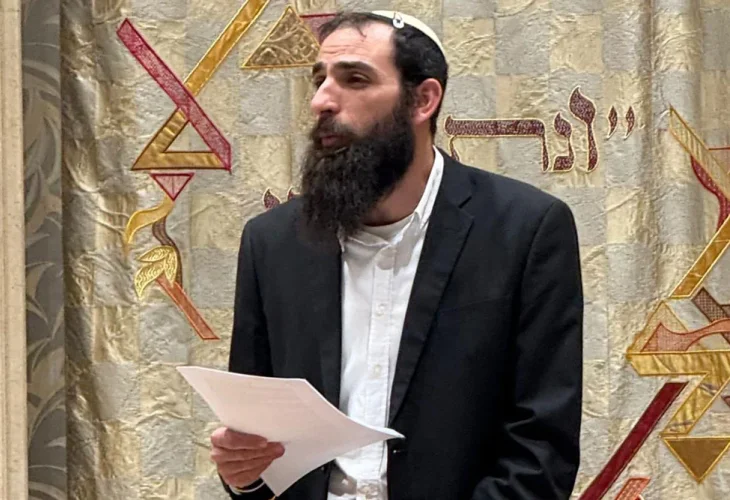
Rabbi Achiyad Ettinger z"l (full disclosure: my father) was murdered in a terror attack at the Ariel Junction six years ago. Rabbi Achiyad had been teaching for several years at the 'Orot Aviv' Yeshiva in southern Tel Aviv.
In the period leading up to the attack, Rabbi Ettinger was working on establishing a new yeshiva in the challenging area near the old central bus station in Tel Aviv. He believed a yeshiva was particularly needed in this location. Rabbi Ettinger worked hard on its establishment—he searched for a suitable building, worked himself to make it fit for study, and even recruited students and donations. On the 11th of Adar 5779, Rabbi Ettinger was murdered while fighting a terrorist at the Ariel Junction. The yeshiva he had worked tirelessly to establish was left without a leader.
"The phone rang at half-past twelve at night," recalls Rabbi Itzik Paniri, the current head of the 'OZ VaEmunah' Yeshiva. "I was nearing the end of my rabbinic studies, deeply engrossed in learning." On the line was Rabbi Eli Sadan, head of the 'Bnei David' institutions, offering his longtime student the challenge of taking on what Rabbi Ettinger had begun. Rabbi Paniri accepted the challenge at once.
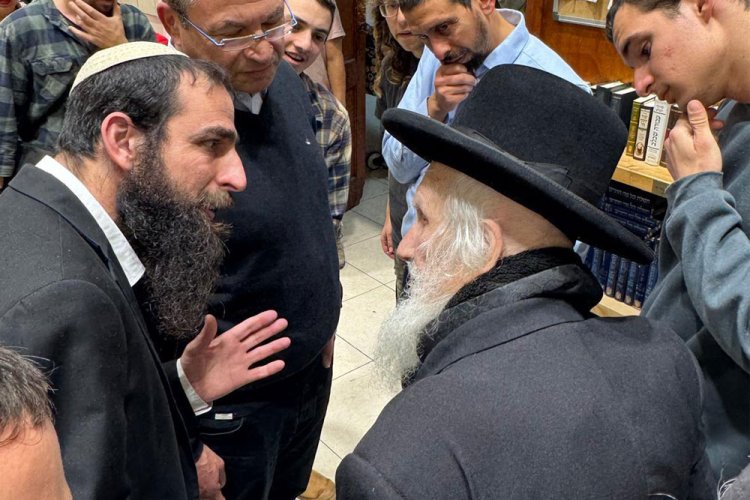
"I Immediately Said 'Here I Am'"
Rabbi Itzik Paniri is married and a father of nine children, ranging from twenty years old to a year and a half. He studied for many years at the 'Bnei David' institutions and later continued with rabbinic studies at the Psagot Rabbinical Court Kollel. The request to lead the yeshiva came when he still had a year and a half remaining in his studies.
Did Rabbi Paniri have doubts about taking on the mission?
"No," Rabbi Paniri responds immediately. "I said 'Here I am!' straight away. I knew of Rabbi Ettinger's heroism from the news and the moment I heard his name in connection with the yeshiva, it was clear to me that I needed to be there."
Rabbi Paniri recounts how the reality brought its complexities. "The next call was to my wife. She is an extraordinarily devoted person. She agreed to the mission but wisely knew there's a need for deliberation. While I was ready to move immediately and begin the mission, she tempered it and requested that things be done methodically and orderly. In general, an important lesson we've learned is to work systematically."
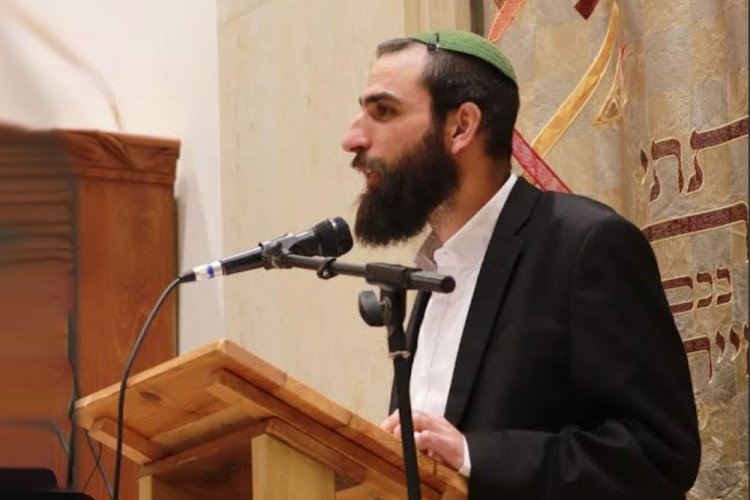
"How Will We Attract Students Here?"
The four months from the phone call to the start of the new academic year were spent in intense study to complete his rabbinic studies before taking on the role. Meanwhile, he began preparing for the mission he'd accepted.
What did Rabbi Paniri find upon his first arrival at the yeshiva?
"I arrived at the yeshiva about two and a half weeks after the attack, right after the appeal from Rabbi Eli Sadan. First, I saw the neighborhood. It's a highly complex area. It's hard for the average person to cope with its scenes: people in challenging situations 'strewn' on the ground, hazardous materials, harsh odors, and other things indescribable in words. Regarding the yeshiva, I had a general idea it was in its early formation stages. When I arrived, there were about six or seven young men and a building that showed efforts had been made to prepare it for study, though it required significant renovation," Rabbi Paniri recalls.
After Rabbi Ettinger's murder, 'Bnei David' took the yeshiva under their wing. Rabbi Paniri recounts that when Rabbi Sadan visited, he was appalled by the neighborhood's sight. "Rabbi Eli expressed doubt about the feasibility of holding a school in such an environment and attracting young men here."
Rabbi Paniri shares a meeting he attended with the 'Bnei David' management, public figures from south Tel Aviv, and Rabbi Ettinger's widow. The question of whether to restore the yeshiva or turn it into another religious project arose. "I sat and listened as everyone spoke," recounts Rabbi Paniri. "When they finished, I asked to speak and told them that if they wished and saw it necessary, I would return the keys to the place. But as long as they wanted me at the helm, a yeshiva would be established here and nothing else." Silence filled the room, after which Rabbi Ettinger's widow stood up and said, "I support what you're saying. This is exactly what my husband aspired to—that a yeshiva is established here."
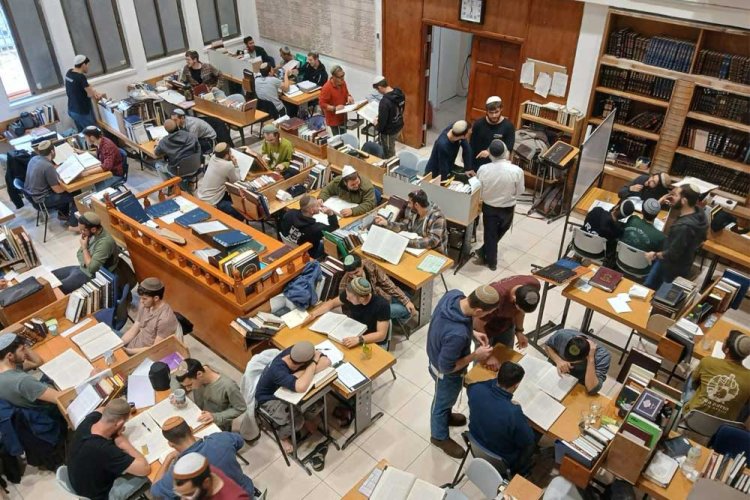
Fueled by the Power of Torah
Why did Rabbi Paniri insist on founding the yeshiva in such a place? After all, he described the neighborhood's challenges.
"Throughout my years, I've learned from my teachers that everything comes from the power of Torah. Volunteerism, idealism, and goodwill—these are wonderful things. But if we want what is established here to be significant and impactful the way we believe it should be, it must be founded on holiness. That's why it was clear to me a yeshiva needed to be established here," explains Rabbi Paniri.
Rabbi Paniri took on the mission four months before the start of the Elul session, when the yeshiva academic year begins. He harnessed his efforts to start the year optimally. Preparations included primarily finding students willing to come to such a challenging place, leading him to visit various yeshivas to seek suitable candidates. Many technical preparations were also required. The yeshiva's hall needed a comprehensive renovation. Dormitories were yet to be established, and a suitable location had to be found for them. Simultaneously, a fundraising campaign was launched. The Elul term of 5780 finally commenced successfully with twelve students.
Was there disappointment over the relatively low number of students?
"Disappointment? We felt much more than successful," Rabbi Paniri smiles. "Considering the challenges and concerns raised, it was an enormous success to attract twelve dedicated and mission-driven young men, ready to study despite all the challenges."
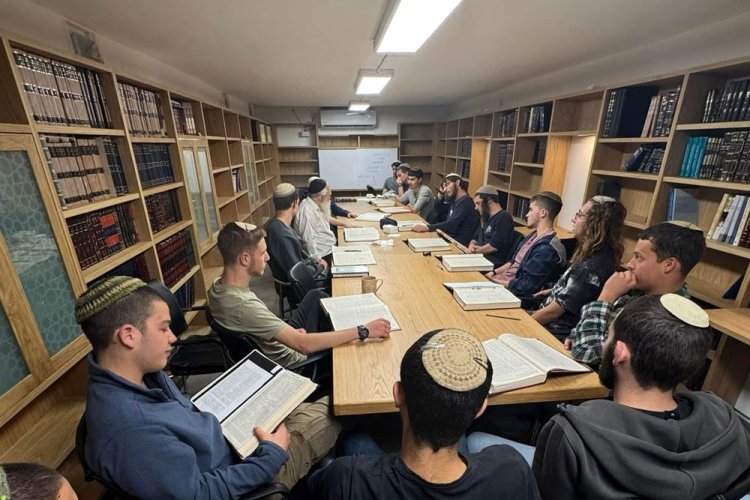
A Great Opportunity and Blessing
Two years after being called to the cause and after the yeshiva settled a bit, Rabbi Paniri moved with his family from the Psagot settlement, where they had lived for many years, to southern Tel Aviv.
Did Rabbi and his wife have concerns before the move?
"Certainly. We lived in a sort of paradise until then. We were part of a religious community, surrounded by families similar to us, and the kids were surrounded by good friends. Many thoughts and concerns arose before the move. We deliberated whether it was right to uproot the kids from the familiar environment, which educational institutions to choose for them, and how to raise children in such a complex environment as where the yeshiva resides."
Rabbi Paniri describes how his children's reactions to the move were mixed. Some expressed enthusiastic support and even pushed to live close to the yeshiva—in the Neve Sha'anan neighborhood—instead of in the more pleasant surrounding neighborhoods. On the other hand, some children expressed reservations.
Additional dilemmas Rabbi Paniri mentions related to moving a large family, finding a suitable home, and the high rental prices in Tel Aviv.
How did the children adapt to the city?
"Thank Hashem, even the kids who were less keen on moving found their place. For instance, one daughter was then in sixth grade. She didn't know how she'd fit in socially in the new place and didn't want to leave the many friends she had in the settlement. In the end, she connected so well with her classmates in Tel Aviv that her Bat Mitzvah party saw two busloads of friends: one from Psagot and another from Tel Aviv," Rabbi Paniri proudly shares.
Alongside the good adjustment, he notes ongoing educational challenges they confront. "When living in a homogeneous settlement, it's easy to educate your children because there is a clear divide: we live by the Torah way and others live differently. This changes when living in a secular place. The children are closely exposed to wonderful people yet lead entirely different lifestyles than we believe in. This exposure brings questions." Rabbi Paniri points out that his family sees this as an opportunity for learning and sharpening their path of faith.
Overall, Rabbi Paniri focuses constantly on the positive. He elaborates on the abundant blessings the family experienced from moving to Tel Aviv, including strengthened family cohesion: "In the settlement, on Friday nights, we wouldn't see the kids—they'd head to friends right after dinner. This is, of course, a blessing to have good friends, but there was no family quality time. Since moving to Tel Aviv, the kids are home more on Friday nights. It's a chance to speak, meet, and naturally enhances our family togetherness," he adds, also mentioning the sense of mission accompanying them and the blessing that comes with raising children in a life of service.
What is the current state of the yeshiva?
"Thank Hashem, the yeshiva now studies seriously and joyfully with over seventy students. The study hall is full, and we're considering the upcoming year, as currently, the facility can't accommodate more students."
Rabbi Paniri highlights that the students are deeply involved in neighborhood charitable activities. "It starts earlier, as students are in charge of everything at the yeshiva. From cleaning, cooking, organizing the rooms, and of course, leading prayer and study sessions. Everything rests on them. Out of this responsibility, they reach out to the surrounding neighborhood. Students distribute food plates to the needy and visit lonely elderly in the area. There's a Holocaust survivor living in dire conditions, for whom they conducted a comprehensive home renovation. There are many more good deeds they accomplish."
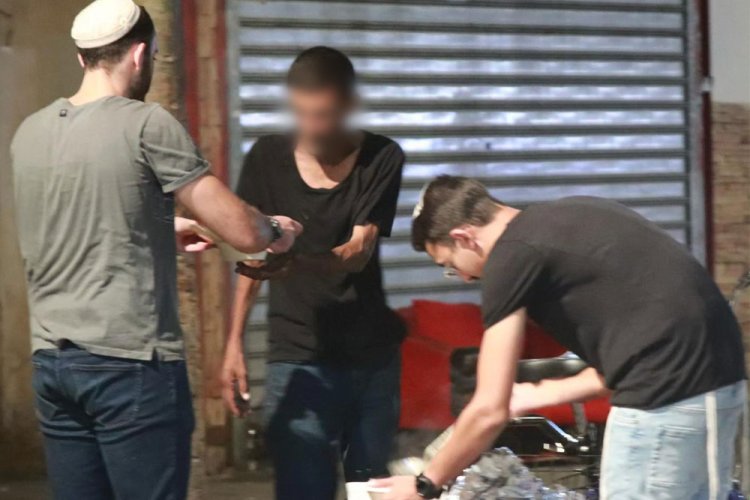
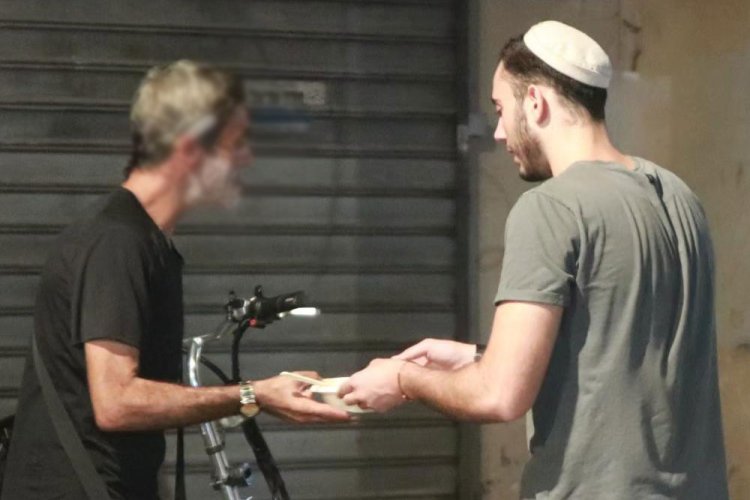
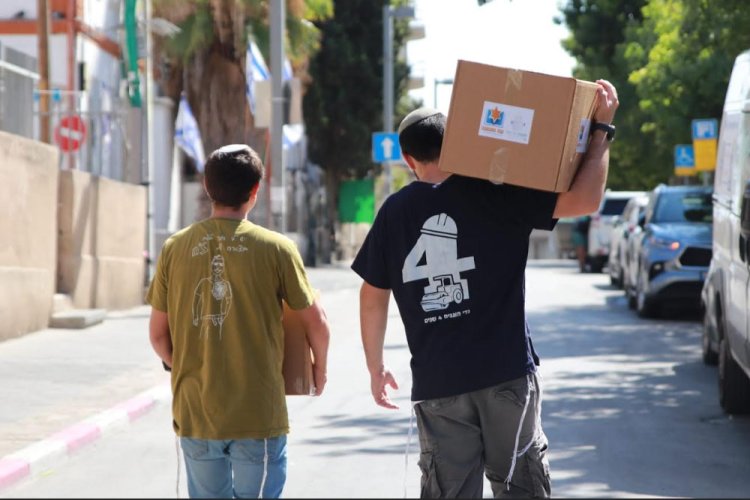
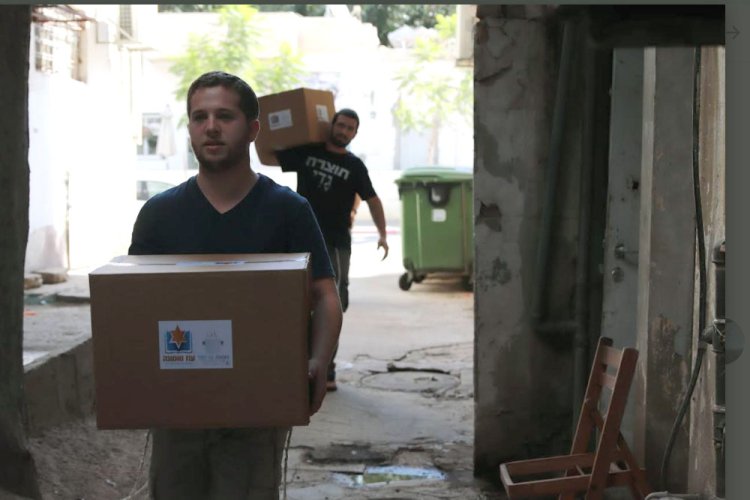
"On the contrary, it's amazing. The kindness they perform boosts their connection to holiness and Torah when they return to the yeshiva."
What is Rabbi Paniri's vision for the future—regarding the yeshiva and beyond?
"To bring more light, goodness, and blessing here, to Tel Aviv, and to the entire Jewish people. I believe many current oppositions towards religious life arise from segments of the Jewish people being disconnected from it, perceiving it as foreign and detached. We aspire for more and more people to get to know it, bringing more goodness and blessing to the Jewish people."

